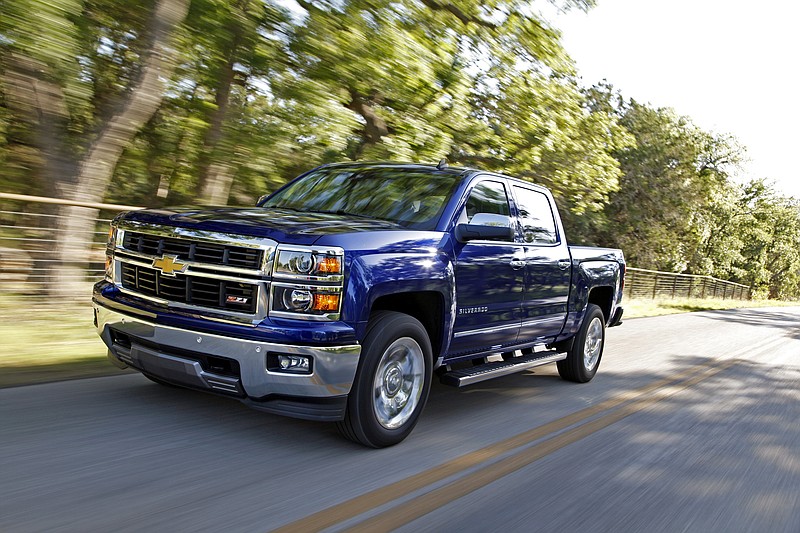America is in the middle of an automotive buying boom.
About 17 million new cars and trucks will be sold in United States in 2015, the sixth consecutive year of growth. That hasn't happened since the 1930s, according to the Auto Alliance, a Washington, D.C.-based automotive trade group.
There are several reasons for the new-car boom, including pent-up demand caused by the Great Recession and historically low interest rates on auto loans. Many automakers are actually offering zero-percent loan rates, essentially free money, for up to six years.
So, in case you're in the market for family transportation, here are some tips to help with your shopping.
* If you are thinking about leasing a vehicle, consider long-term financing instead. In the late 20th century, 48-month car loans were the norm. Now, with interest rates vanishingly low, 72-month auto notes are becoming more prevalent. If you are considering leasing a family vehicle to keep payments manageable, a 72-month loan might give you more flexibility, and the financial hit may be negligible.
Too, with a loan you can always sell in a pinch. Depending on the size of your down payment, you might even start building equity pretty quickly. Remember, advertised lease prices are often based on conservative mileage allotments of 10,000 to 12,000 miles per year. Your actual mileage - and cost - will probably be higher.
* If you regularly transport five or fewer people, don't automatically shop for a sports utility vehicle. A family sedan might be cheaper and more comfortable.
Many suburbanites, who are conditioned to think of SUVs as the default mode of family transportation, have forgotten about the virtues of family sedans. While many crossover SUVs are constructed to drive like cars, few offer the refined handling and ride comfort of mid-size sedans such as the Ford Fusion or Honda Accord.
* Consider a pick-up truck as a second vehicle. It's no secret that the top three selling vehicles in America are Ford, Chevrolet and Dodge trucks, in that order. Few of the trucks sold today are the three-passenger, bench-seat models of old. The advent of four-door trucks with roomy back seats have made them serviceable family haulers.
Smaller trucks like the Toyota Tacoma or Chevrolet Colorado make terrific second vehicles. Plus, they hold their value. A Tacoma, bought today, is expected to fetch 65 percent of its sticker price in five years, according IntelliChoice, the car-information website.
* Buy complimentary vehicles. If you've already got a serviceable SUV, think about something smaller as a second vehicle. But don't go too small. Buying a second vehicle that won't accommodate your whole family, even for short trips, is a mistake.
Also, consider having at least one vehicle with all-wheel drive, especially if you live on a mountain where snowfall is more prevalent.
* Don't buy for "what if" events. Too many people buy for outlier situations. They count all the people they might possibly want to carry in their vehicle once or twice a year - say eight - and buy a full-size SUV. Unless you have unlimited funds, buy a vehicle that accommodates your needs 95 percent of the time. Stretching to 100 percent is a needless expense. This is a vehicle, not a house. It doesn't need a guest room.
* Stagger your vehicle purchases. Plan judiciously so that you don't need to replace two vehicles at the same time. If you stagger your purchases strategically, you should be able to get by with no more than one car payment.
* Don't assume gas prices will stay low. Fifteen miles per gallon doesn't sound that bad today with gas at under $2 a gallon. But assume the vehicle you buy today might still be in service when gas is $4 a gallon. Hybrids are being deeply discounted at the moment. Why not buy low and sell high?
* Check for a spare tire. More and more new cars don't have them - just a can of stop leak and an inflation pump. Think about how you'd feel about waiting for help on the side of the road at midnight with a load of kids. It's a little detail, but it might tip your purchase from one vehicle to another.
* Don't let the kids vote. While it might be tempting to build a consensus choice among your family members, buying a vehicle by committee is good way to find yourself the proud owner of a purple Hummer.
Contact Mark Kennedy at mkennedy@timesfreepress.com or 423-757-6645. Follow him on Twitter @TFPCOLUMNIST. Subscribe to his Facebook updates at www.facebook.com/mkennedycolumnist.

